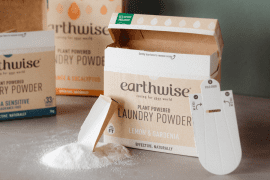Many people in New Zealand – and indeed across the world – suffer from eczema and other skin conditions. Symptoms can include dry, sensitive, red, flaky and itchy skin, but it is a problem that impacts its sufferers and their families way beyond any physical symptoms. Sufferers can experience a drop in confidence and families can really feel the financial stress of having to pay for treatments.
A recent survey conducted by PR Agency, PEAD, commissioned on behalf of Childs Farm, showed that more than two in five Kiwi children (42%) suffer from eczema, skin irritations or sensitive skin issues. These types of skin irritation impact children in many ways, with the most common being the need to be careful with what clothes they can wear (45%), inability to sleep and feeling self-conscious. One in five children suffering skin irritations has had to miss a day of school or has difficulty participating in everyday outdoor activities, with the financial stress of paying for treatment affecting 17% of parents and families.
Normal, everyday occurrences can cause a flare up of a child’s skin irritations, with the most common causes being a change in skin care or washing powder (60%), seasonal changes – especially winter – and habitual scratching. Food and diet and stress are also factors that can trigger a flare up.

For the majority of children suffering skin irritations (62%), their confidence has been adversely affected, especially teenagers and those who have had skin irritations for more than ten years. Finding a routine to manage children’s skin conditions is not easy either, with 26% of parents saying it is an ongoing issue, and a further 11% who haven’t been able to find a solution yet. Close to nine in ten parents (87%) rely on medicated treatment from a doctor to help with their child’s skin irritation and many look to homemade, natural remedies to help with their skin.
The main goal of treatment for sensitive skin conditions is to lessen the itching and irritation. This can be done by avoiding any known triggers, using emollients such as moisturiser to soothe skin irritated by eczema and seeking advice from a doctor or dermatologist. Used with care, corticosteroids (like hydrocortisone) can reduce inflammation in the case of allergic reaction and different strengths are available on prescription. Topical, steroid-free, anti-inflammatory medication is also available by prescription and can be used to treat eczema and other inflammatory skin conditions. Antihistamines are also an option to help the itching.
The survey also highlights that food and diet can trigger eczema and allergies, so special elimination diets can be effective in some cases.











